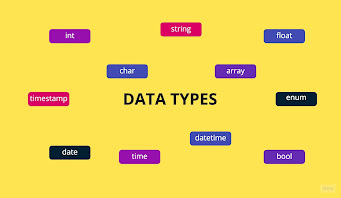Data types and Access modifiers. In English
Data type and Access modifiers
Content
1.What is a data type?
2.Data types
3.Number systems
4.Access modifiers
1.What is a data type?
The different types of data that can be stored are called data types.
2.Data types
Data types are divided into two categories.
1.Primitive data types
2.Non - primitive data types
Primitive Data Types
A primitive data type specifies the size and type of variable values.
There are eight primitive data types in Java.
Numerical data types: - 1. byte (Byte)
2. short (Short)
3. int (Integer)
4. long (Long)
5. float (Float)
6. double (Double)
True/False(binary-1/0): -7. boolean (Boolean)
8. char (Character)
String is a class. But string is used as a data type in Java.
3.Number systems
1.Binary number system
Use 2 digits 0 and 1. Also called as based 2 number system. Each binary digit is also called a bit.
Ex: - 110112
2.Decimal number system
The decimal number system is the standard system for denoting integer and non-integer numbers. Also called as based 10 number system.
Ex: - 33410
3.Octal number system
Use eight digits. 0,1,2,3,4,5,6,7. Aso called based 8 number system.
Ex: - 125078
4.Hexadecimal number system
Use 10 digits and 6 letters. 0,1,2,3,4,5,6,7,8,9, A, B, C, D, E, F. Letters represent numbers starting from A=10, B=11, C=12, D=13, E=14, F=15. Also called as based 16 number system.
Ex: - 56EA16
byte 1024 = kb 1
kb 1024 = mb 1
mb 1024 = gb 1
gb 1024 = terra 1
Peta byte, Jeta byte, Zeta byte
string b = "456" X✔
int c = "123" ✖
4.Access modifiers
Access modifiers are used to modify the security given to access classes, variables and methods.
There are four types of access modifiers.
1.Public - Anyone can use.
2.Protected - The code is accessible in the class, package and sub classes.
3.Private - The code is only accessible in class.
4.Default - The code is only accessible in class and package.
(class, method, variable)
public class Nimeshi {
}
protected class Nimeshi {
}
private class Nimeshi {
}
class Nimeshi { }
public void abc ( ) {
}
private void abc ( ) {
}
void abc ( ) {
}








Comments
Post a Comment